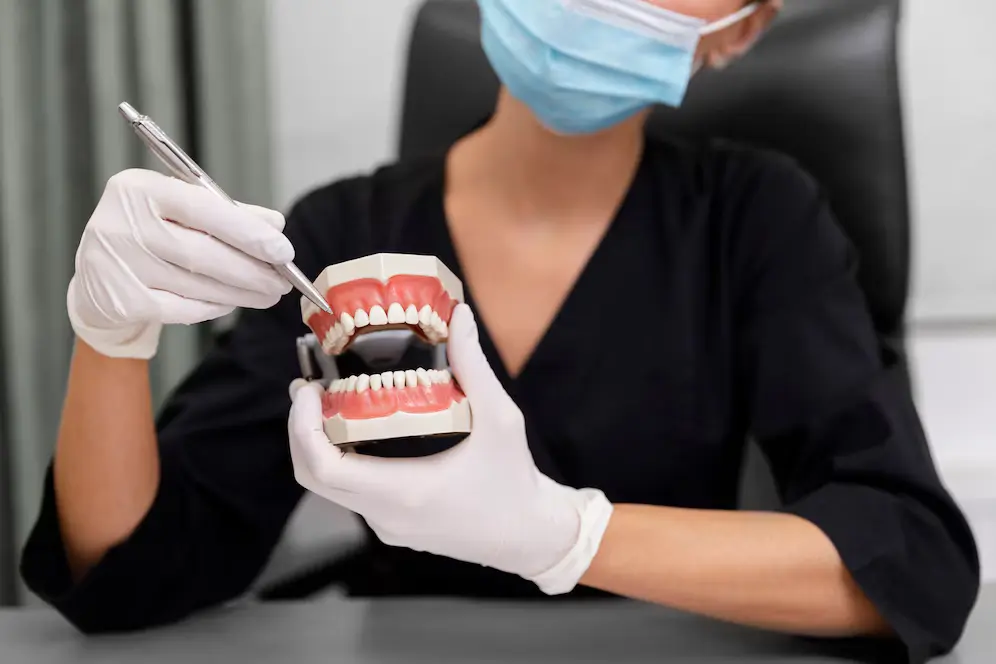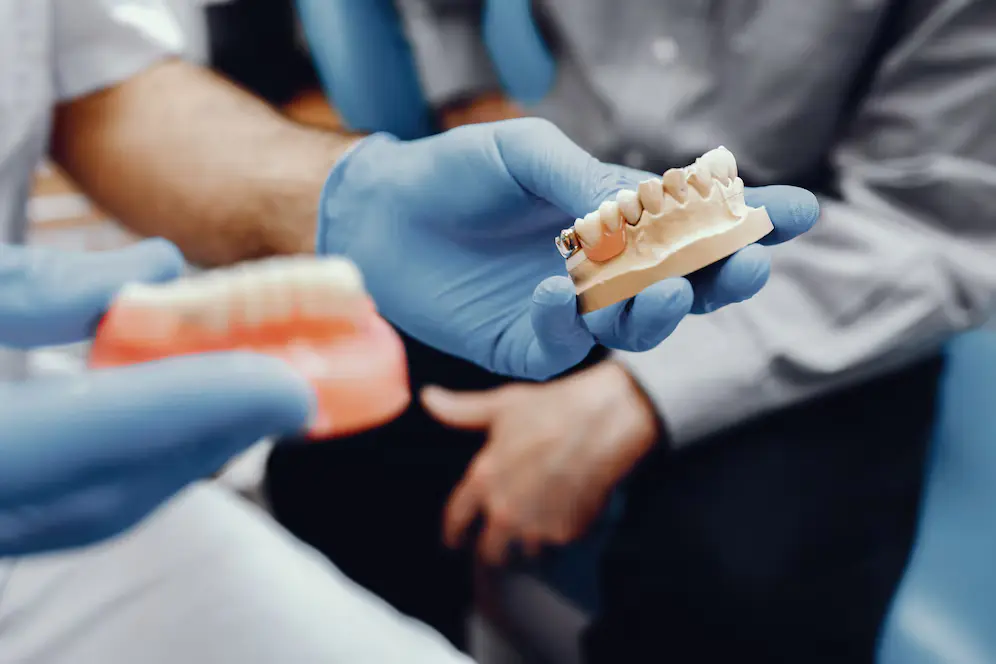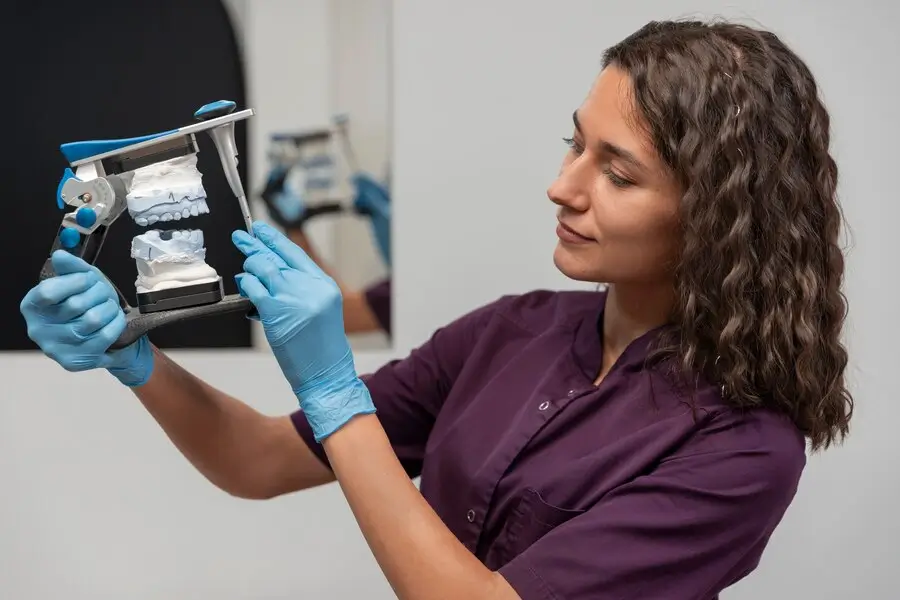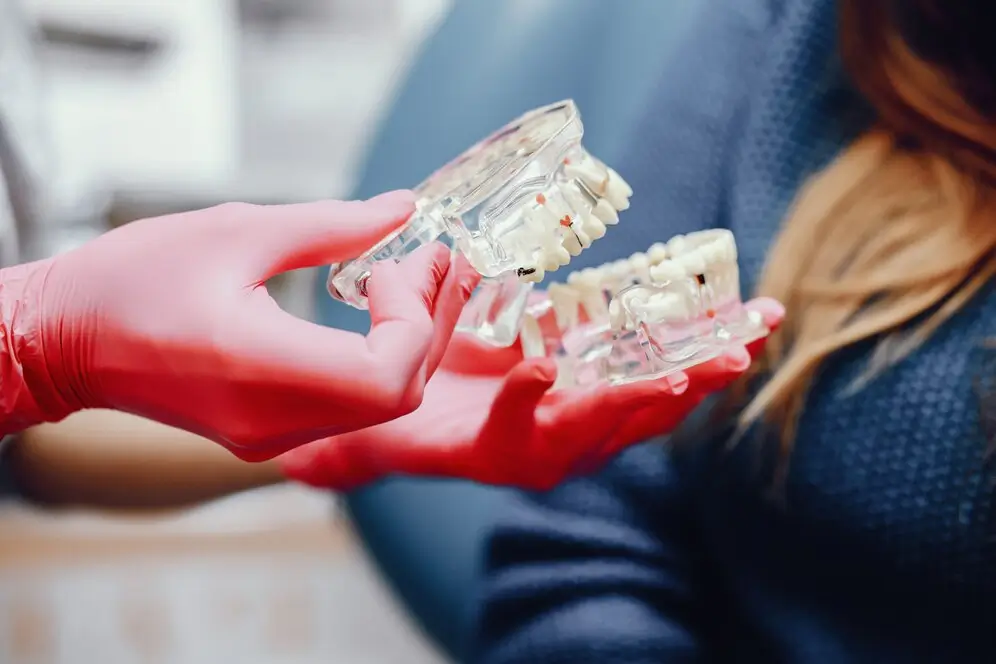What Are Dental Crowns?
Dental crowns are custom-made caps placed over teeth that have been weakened or damaged by decay, cracks, or injury. They cover the entire visible part of the tooth above the gum line and help restore its shape, strength, and appearance. Crowns are made from different materials like porcelain, ceramic, metal, or a combination, depending on your dental needs and preferences. They are designed to be indistinguishable from your natural teeth, both in look and function. By protecting the tooth underneath, crowns help prevent more damage and improve your bite and oral health.
Different Types of Dental Crowns
There are many options when it comes to restoring a damaged tooth, and choosing the right crown depends on your needs. The different types of crowns vary in material, durability, appearance, and cost. Some are better suited for front teeth where looks matter most, while others are built to handle heavy chewing in the back of the mouth. Understanding the various types of dental crowns can help you make the best choice for your smile and oral health. Your dentist in Clifton will help you understand your options based on what works best for your situation.

Porcelain Crowns
Porcelain crowns are one of the most popular types of crowns for restoring front teeth because they offer a natural, tooth-like look. Made from a ceramic material that closely resembles real enamel, they fit in well with surrounding teeth and are also a great choice for people with metal allergies. Porcelain crowns resist staining and are a good option when appearance is a top concern. However, they may not be as durable as metal-based crowns and can sometimes cause wear on the teeth they bite against.
Ceramic Crowns
Ceramic crowns are a popular choice among the many types of dental crowns because they offer a natural look and are often used for visible front teeth. While they’re similar to porcelain, they are made from a slightly different material that is both durable and gentle on the gums. One of their most noticeable advantages is biocompatibility, making them suitable for patients with metal sensitivities or allergies. While not as strong as metal-based crowns, ceramic options offer an excellent balance of appearance, comfort, and function, especially when appearance is a priority.
Zirconia Crowns
Zirconia crowns are a very strong and durable option among the many different types of crowns available today. Made from zirconium dioxide, which is a high-strength ceramic, they offer both toughness and a tooth-colored appearance. These crowns are often chosen for their ability to handle pressure from chewing while still looking natural. They are also biocompatible, meaning they’re gentle on the gums and unlikely to cause allergic reactions. Their durability makes them a popular choice for both front and back teeth, though they can sometimes wear down opposing teeth.

Metal Crowns (Gold, Silver, and Alloys)
Metal crowns, like those made from gold, silver, and various alloys, are one of the most durable options among the different types of crowns. Built to handle heavy chewing and biting forces, they’re commonly placed on back teeth where strength matters most and appearance is not as important. These crowns require minimal tooth reduction and have a long track record of lasting performance. While their metallic color makes them less ideal for visible teeth, they’re a top choice for molars thanks to their reliability and resistance to wear over time. The only concern is that they may cause allergic reactions.
Porcelain-Fused-to-Metal (PFM) Crowns
Porcelain-fused-to-metal (PFM) crowns are a common type of tooth crowns that offer both strength and a natural look. They have a metal core for durability and a porcelain coating to match the color of your natural teeth. This combination makes them a versatile choice for restoring both front and back teeth. While they have a secure and comfortable fit, the metal underneath can sometimes show through the porcelain layer, especially near the gum line. Still, PFM crowns are a reliable option if you equally care for both the long-lasting function and appearance.
Resin Crowns
Resin crowns are a budget-friendly type of tooth crowns made from tooth-colored composite material. They offer a natural look and are often chosen as a short-term or temporary option. While they are less costly compared to other crown types, resin crowns are also prone to wear, chips, and fractures over time. Because of this, they are not typically recommended for long-term use in areas that experience heavy biting or chewing. Still, they provide an affordable solution when immediate restoration is more important.
Temporary Crowns
As the name suggests, temporary crowns are short-term solutions used while waiting for permanent ones. They help protect the tooth and maintain gum function during the time your final crown is being made. These crowns are usually made from inexpensive materials like acrylic or resin since they’re not supposed to be used for longer than a few weeks to a month. Although not as strong or precise as permanent ones, they still allow you to eat and speak normally in the meantime. Among the many types of crowns for teeth, temporary crowns provide a supportive role in the restoration process.

What Are the Benefits of Dental Crowns?
Dental crowns come with many benefits, making them a popular choice for restoring damaged teeth.
- Protects Weakened Teeth. Crowns fully cover the affected tooth, helping prevent more decay and reducing sensitivity.
- Simple Procedure. Getting a crown is usually straightforward and doesn’t take much longer than a regular filling.
- Good for Looks. A crown improves the look of a cracked, discolored, or misshapen tooth, fitting in with your natural teeth.
- Durability. With proper care, a crown can last many years, giving you long-term results.
- Comfortable and Functional. Crowns allow you to chew and speak normally, like with natural teeth.
There’s a type of crowns for teeth to match nearly any dental need, from metal to the various types of porcelain crowns known for their natural look and feel. Crowns are a good way to help you restore both oral function and appearance.
Choosing the Right Type of Dental Crown for You
Selecting the right dental crown isn’t one-size-fits-all – it depends on some personal and clinical factors. Your dentist will consider the tooth’s location, how much pressure it handles during chewing, how visible it is when you smile, your budget, and your preference for materials.
Durability, aesthetics, or something that balances both, it is possible to find different types of crowns for teeth designed to meet your needs. Some patients may benefit more from metal crowns for back molars, while others prefer porcelain options for front teeth because of their natural appearance. A personalized consultation will help you get the right solution for both comfort and function.
What Happens During A Dental Crown Procedure?
During a dental crown procedure, your dentist will first examine the tooth and take X-rays to check for decay or infection. If needed, the tooth will be reshaped to make space for the crown. Impressions are then taken to create a custom fit, in the meantime a temporary crown may be placed to protect the tooth.
At the next appointment, the temporary crown is removed and replaced with the permanent one, which is secured using dental cement. Local anesthesia can be used to make placement comfortable. In some cases, digital impressions and CAD/CAM technology allow for same-day crowns.
Depending on the type of dental crowns chosen – such as metal, ceramic, or porcelain – the steps may slightly differ. Each crown is carefully adjusted for fit and bite before final placement, so it fits naturally with surrounding teeth.

What are the Risks and Considerations In Getting Dental Crowns
While dental crowns are widely used to restore and protect damaged teeth, there are certain potential risks to keep in mind. It’s normal for your tooth to feel sensitive after the procedure, especially when eating hot or cold foods. Some types, like porcelain or porcelain-fused-to-metal crowns, are more prone to cracking, especially if you grind your teeth or bite on hard foods.
Loose crowns may occur if the cement weakens over time, allowing bacteria to sneak in and harm the tooth underneath. Additionally, certain patients may have allergic reactions to the metal components used in specific crown materials. That’s why your dentist will help you understand which option among the different kinds of crowns is the best for you and your health needs.
Dr. Doktorman Can Help You Select the Best Dental Crown
Choosing the right dental crown starts with an experienced professional who truly understands and cares for your needs. Dr. Edward Doktorman, a trusted dentist in Clifton, offers fully personalized care to help you select the best crown based on your oral health, budget, and cosmetic goals. He’ll help you understand all your options, from different types of dental bridges to the pros and cons of implants vs dentures.
Whether you’re getting your first crown or replacing an old one, Dr. Doktorman makes the procedure comfortable,while also providing a lasting solution. He can also advise you on related services like whitening – because yes, patients often ask, how long does teeth whitening last? And it depends on how well you care for your smile. With routine checkups (because how often should you go to the dentist? At least twice a year!), you’ll stay on track.
Ready to get that beautiful, shiny smile? Call today and book your consultation.
Conclusion
Understanding the different types of dental crowns can help you make the best choice for your oral health, function, and appearance. Whether you need strength, aesthetics, or a combination of both, there’s a crown option to match all your needs. Always consult with your dentist to find the best option for your unique oral health. A well-chosen crown can protect your tooth and keep your smile beautiful for years.
FAQs About Different Types of Dental Crowns
What Are Tooth Crowns Made Of?
Tooth crowns can be made from a wide variety of materials, such as porcelain, ceramic, metal alloys (like gold or nickel), resin, and porcelain fused to metal. Each material differs in durability, appearance, and cost, depending on the patient’s needs. Your dentist will help you choose the best option.
What Type of Dentist Does Crowns?
A general dentist can perform dental crown procedures, especially for routine cases. However, for complex restorations, a prosthodontist – who specializes in restoring and replacing teeth – may be recommended. Both professionals are trained to evaluate, prepare, and place crowns.
What Does a Crown Look Like?
A dental crown looks like a natural tooth cap that covers the visible part of a damaged or decayed tooth. It’s custom-made to match the shape, size, and color of your surrounding teeth. Crowns can be made from porcelain, ceramic, metal, or a combination of materials.
What's the Difference Between a Crown and a Cap?
There is no difference between a crown and a cap – they are two names for the same dental restoration. “Crown” is the more commonly used professional term, while “cap” is a more casual term. Both are the same thing.
How Long Do Different Types of Crowns Last?
Different types of crowns can last anywhere from 5 to 15 years or more, depending on the material and how well you care for them. Porcelain and ceramic crowns may wear faster, while metal crowns tend to last longer. In many cases, it’s not the crown itself that fails, but the cement underneath that wears down, allowing decay to develop, which requires full replacement, since the crown can’t be replaced without damaging it.







